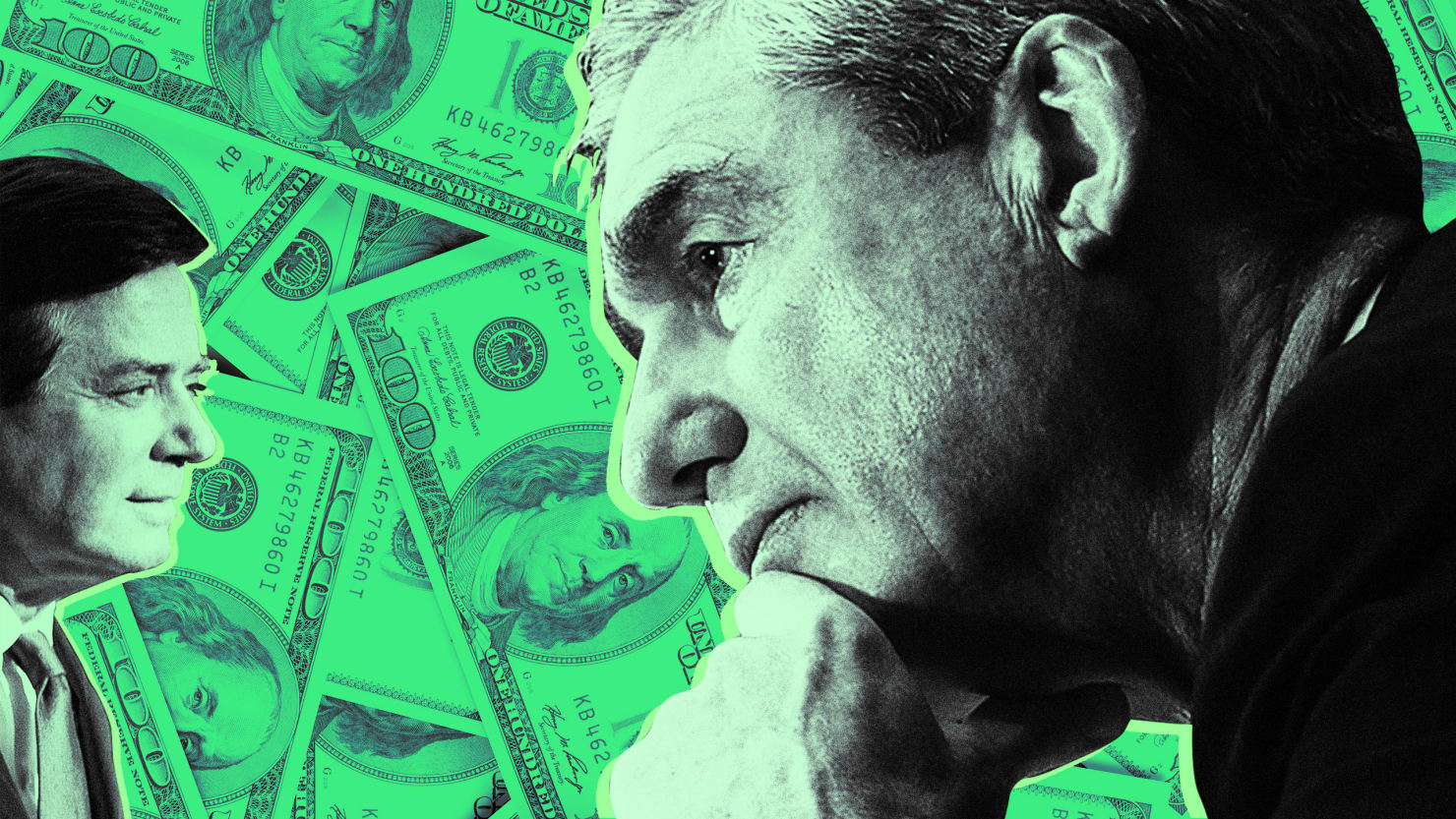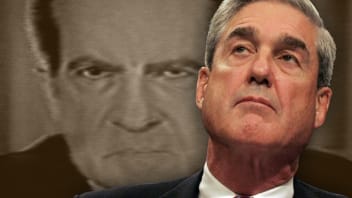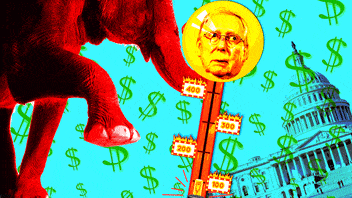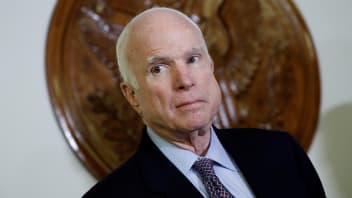
PHOTO ILLUSTRATION BY ELIZABETH BROCKWAY/THE DAILY BEAST
REMIX
Robert Mueller May Indict Paul Manafort Again
The charges against the former Trump campaign boss appear to have been only an opening salvo in a legal barrage on the president’s confidants, informed observers say.
12.26.17 7:58 PM ET
From its inception, two things about special counsel Robert Mueller’s investigation were clear: first, the White House’s biggest concern was that Mueller would follow the money; and second, Mueller is following the money.
It’s been seven months since Deputy Attorney General Rod Rosenstein ordered Bob Mueller to take over the FBI’s counterintelligence probe into possible links between the Kremlin and people associated with the Trump campaign. Trump’s lawyers have long said they expected the probe to stay focused and end quickly. Instead, Mueller has assembled a team of prosecutors with expertise in handling financial investigations and white-collar crime, and obtained guilty pleas for crimes that weren’t committed during the election year.
And, most importantly, he’s sent a thinly veiled warning to the White House: No one’s finances are off limits. If 2017 had the president’s inner circle sweating, 2018 could feel like a sauna.
And no one may feel more heat than Paul Manafort. In Washington legal circles, there’s a broad expectation that Mueller will file what’s called a superseding indictment of Manafort and Rick Gates, his erstwhile business partner—and alleged partner in crime. Gates and Manafort both pleaded not guilty when Mueller’s team filed their indictment on Oct. 30. Legal experts say there may be more charges to come.
“I would expect a superseding indictment to come down relatively soon,” said Jonathan Turley, a professor at George Washington University’s law school.
“There was much in the narrative of the indictment that referenced crimes not charged,” he added. “Prosecutors will often issue a superseding indictment as the grand jury continues its work. There’s also a tactical reason for this, that superseding indictments tend to grind defendants a bit more over time.”
A superseding indictment would essentially replace the current indictment of Manafort. And in that current indictment, Mueller’s team hinted there was more to come. In particular, they hinted at potential tax charges for Manafort’s foreign financial transactions. Federal prosecutors can bring charges against any American who has money in a foreign bank account and doesn’t check a box on their tax forms disclosing it. The Manafort/Gates indictment describes financial behavior that may be liable for that kind of prosecution. And that’s an indicator that Mueller’s team may be preparing to formally charge both men with violating tax laws.
RELATED IN POLITICS
A former prosecutor from the Justice Department’s tax division said Mueller handed down what’s known as a “speaking indictment”—in other words, an indictment that contains more information than necessary.
“It’s a way of dirtying up a defendant without having to actually prove the conduct,” he said. “I think, in fairness to them, they probably rushed it because they didn’t want to wait for the tax division approval on those tax counts. That, I assume, would be working its way through the system.”
“No one’s finances are off limits. If 2017 had the president’s inner circle sweating, 2018 could feel like a sauna.”
Anytime federal prosecutors want to charge someone with breaking tax law, they must get approval from the Justice Department’s Tax Division. That approval process can be time-consuming, and the would-be defendant’s attorneys often can petition Tax Division lawyers against authorizing the charges. Following the money, it turns out, can be circuitous.
“Superseding indictments are frequently brought in financial investigations due to defendant recalcitrance to cooperate and also because they take so long to be put together,” said Martin Sheil, a retired supervisory special agent for the IRS’ criminal investigations unit.
Mueller has been working with IRS criminal investigators, as The Daily Beast first reported in August. Those agents specialize solely in financial crimes with a tax nexus; their cooperation was an early indicator that money mattered to Mueller.
And Manafort and Gates may not be the only Trump campaign alums with headache-generating finances. On Dec. 1, retired Gen. Michael Flynn—the president’s former national security adviser—pleaded guilty to lying to the FBI about his communications with Russian government officials. Court documents indicate that Flynn has agreed to help Mueller’s team with their investigation in exchange for leniency.
Sheil noted that if Flynn isn’t as cooperative as Mueller expects, then his financial dealings could be easy fodder for Mueller.
“Flynn did not disclose payments received from Russia in 2015 nor Turkey in 2016 on his Security Disclosure forms,” Sheil said. “What is the likelihood he reported these sums on his tax returns?”
Additional trouble for Team Trump could arise out of the blizzard of subpoenas that reportedly went out to Deutsche Bank in the last few weeks.
The German mega-bank is likely accustomed to hot water. In January of 2017, they agreed to pay $425 million to the New York Department of Financial Services to settle allegations that they let Russian traders engage in what those regulators called “a money-laundering scheme.” In that particular scheme, Russians moved $10 billion to the United States.
It’s an eye-popping concession, but one that largely got lost in the noise of Trump’s inauguration and the political implications of Russian efforts to intervene in the 2016 elections. But it points to close ties between the bank and Kremlin elites. The bank’s lawyers signed court documents admitting they were “on clear notice” about their insufficient safeguards against unlawful activity (PDF)—while the multibillion-dollar scheme was unfolding. In fact, those lawyers admitted their traders in Moscow went “to significant lengths” to make the scheme work. They even admitted that one of their Moscow supervisors appeared to have taken bribes related to the scheme that were worth up to $2.3 million. It was underway from 2011 to early 2015.
Jared Kushner and Trump himself have had significant dealings with the bank, which also helped the hedge fund of billionaire Trump patron Robert Mercer trim billions from its tax bill. The bank has long interested congressional investigators looking into potential connections between Trump World and the Kremlin. And if reports about Mueller’s subpoena of the bank are correct—and the White House says emphatically that they are not—then Mueller’s money trail may be making a pit stop in Germany.
“Flynn did not disclose payments received from Russia or Turkey in 2016 on his Security Disclosure forms... What are the chances he reported these sums on his tax returns?”
Besides that, Mueller’s probe is causing bipartisan anxiety in Washington. The indictment of Manafort and Gates mentioned two lobbying firms—referring to them only as “Company A” and “Company B”—which are widely assumed to be the Podesta Group and Mercury LLC. Within hours of the indictment’s release, Tony Podesta resigned from his firm. He’d previously drawn criticism for helping Manafort push Kremlin-friendly talking points to Capitol Hill offices.
“The Manafort and Gates indictment left a number of torpedoes in the water,” said Turley. “We’re just waiting to see who they hit. One of the most likely targets is Tony Podesta.”
The only person in a position to constrain Mueller and his deputies is Rosenstein, who has been overseeing all Trump/Russia matters since Attorney General Jeff Sessions’ recusal. A former Justice Department official who worked under now-Deputy Attorney General Rod Rosenstein told The Daily Beast that he’s unlikely to rein in Mueller at all.
“As long as Rod is supervising, he is never going to put Mueller under any kind of pinch,” he said. “That’s just the way Rod operates.”
It means that as long as Rosenstein stays in place, Mueller will likely be able to follow that money trail wherever it leads.




No comments:
Post a Comment
Thanks for commenting. Your comments are needed for helping to improve the discussion.